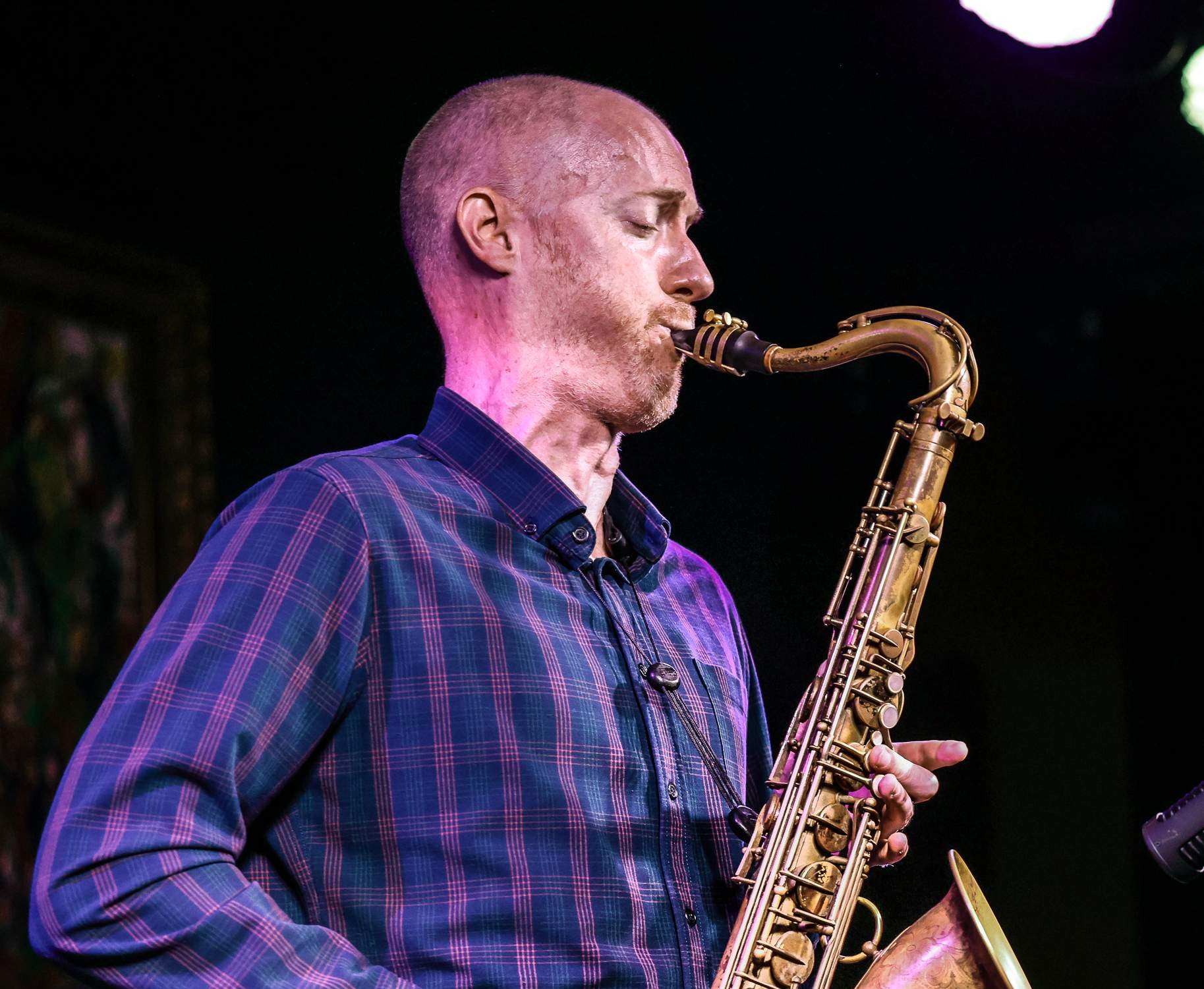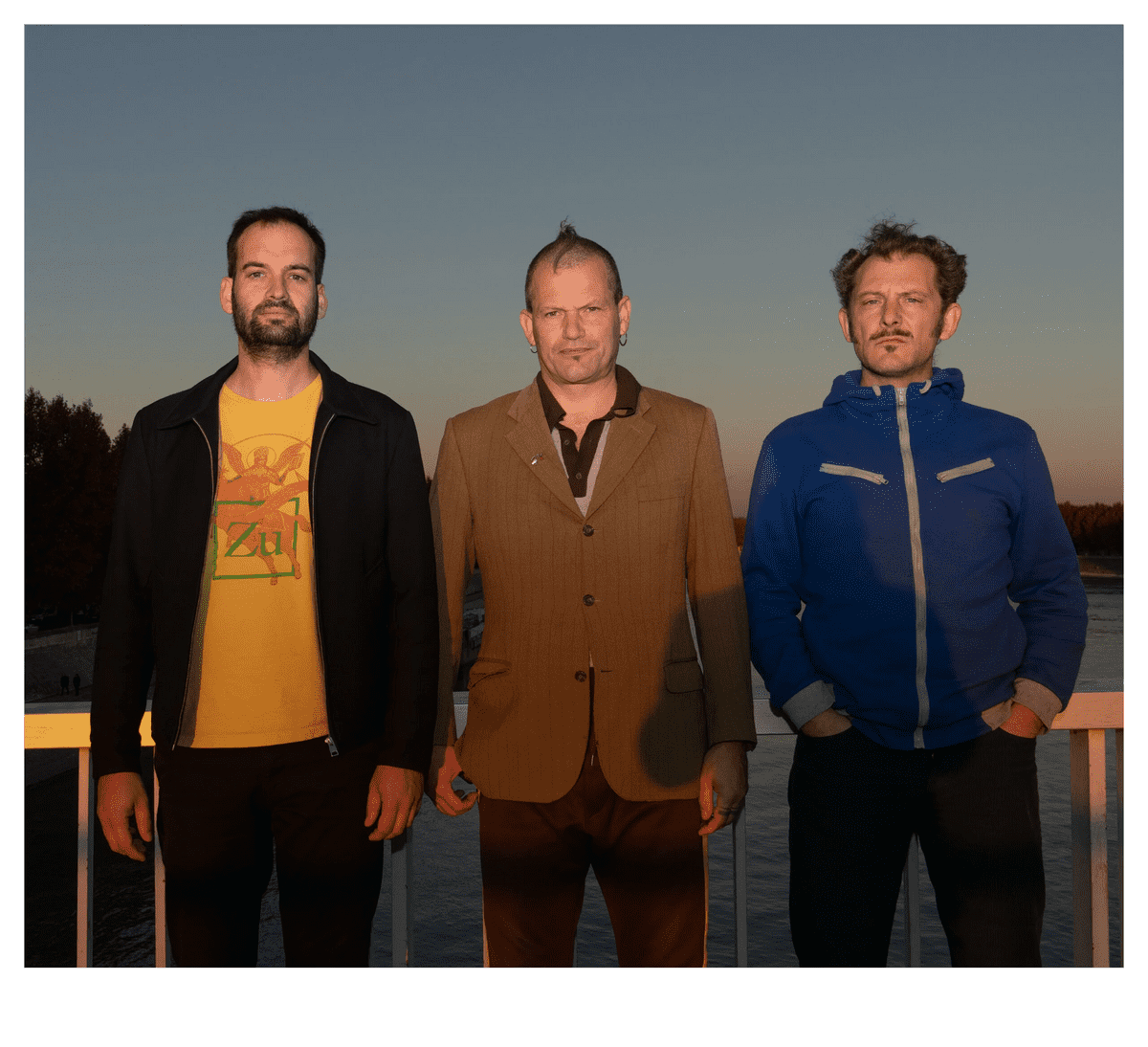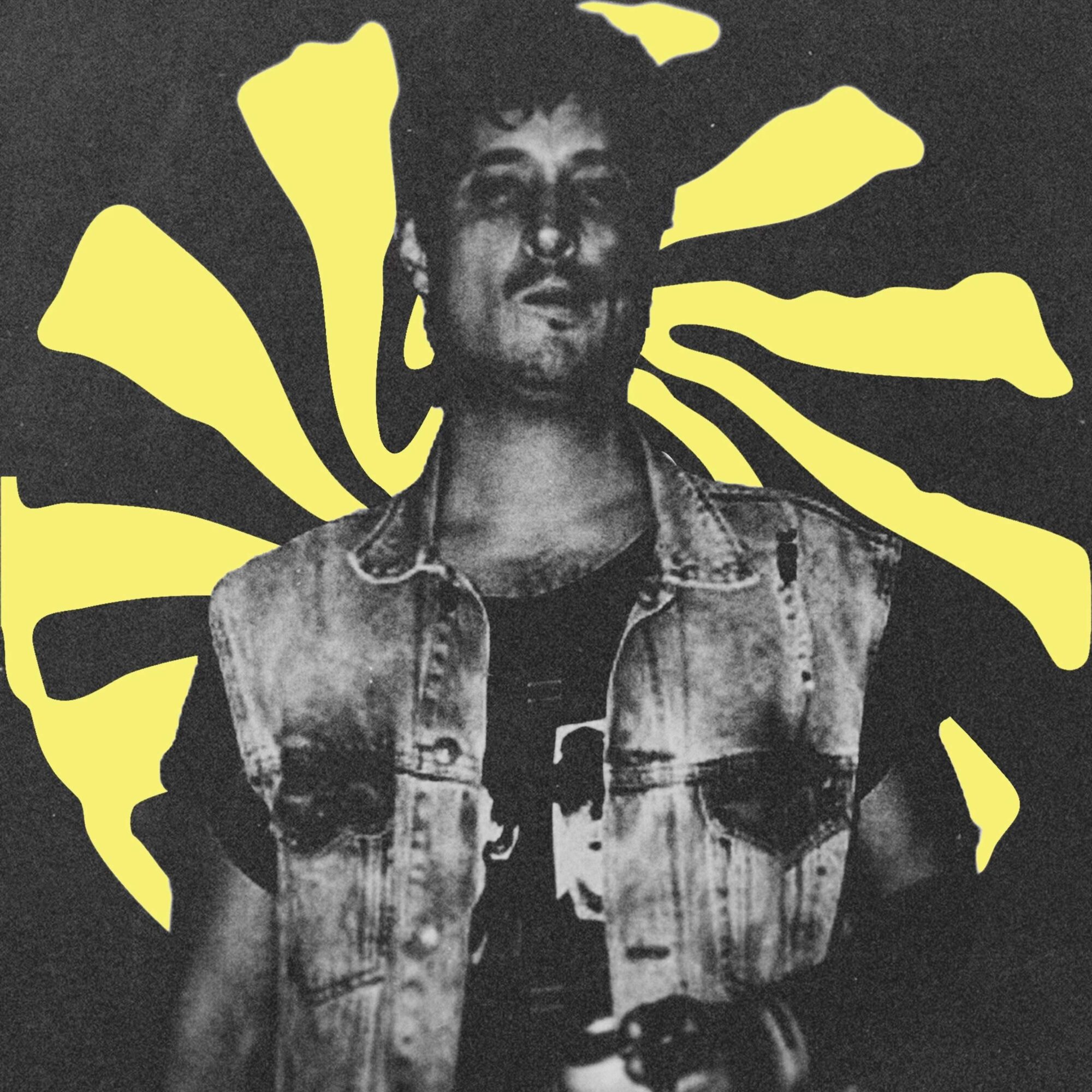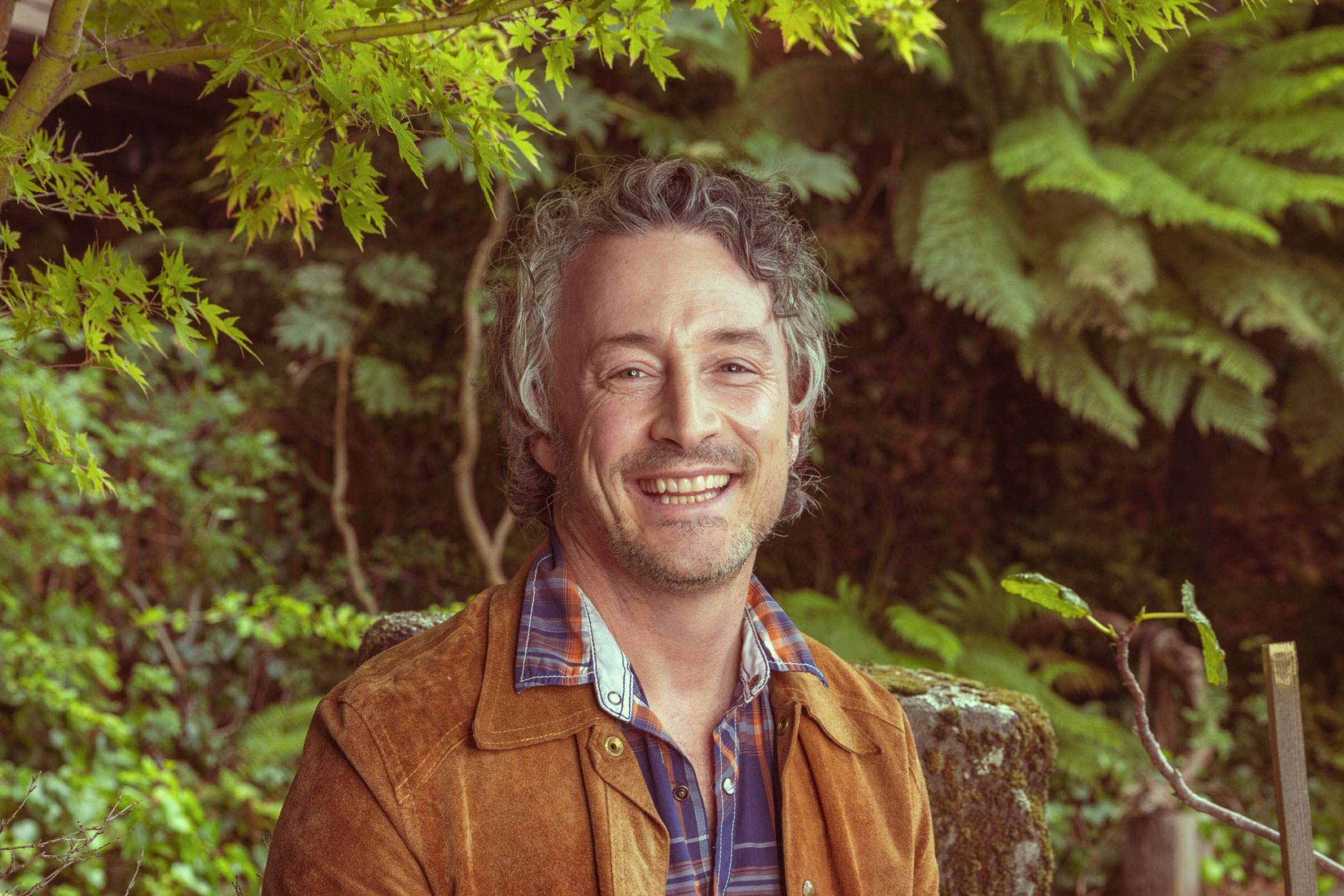Sean Imboden’s ‘Communal Heart’: A Quiet Subversion of the Big Band Canon
By the time the final echoes of ‘Portal Passage’ fade on Sean Imboden’s debut big band album, ‘Communal Heart,’ a subtle yet profound recalibration has occurred.
As the name of the album suggests, ‘Communal Heart’ is not concerned with bombast, often expected from large ensembles; instead, thirty-seven minutes of deeply human, harmonically rich music unfold with remarkable precision, favoring resonance and lived experience over spectacle. What commences as taut, grounded ensemble work gradually unfurls, posing a question rather than delivering an answer. The music doesn’t conclude with an emphatic period; it dissipates, like an exhale, deliberately unresolved.
Imboden, a saxophonist and composer now rooted in Indianapolis, convened his 17-piece collective with an agenda beyond mere orchestral ambition. After years navigating the transient ecosystems of Broadway tours and collaborating with luminaries like Slide Hampton and Emmet Cohen, his return to the Midwest was a deliberate act of anchoring—a pursuit of creative music forged in local connection. ‘Communal Heart,’ shaped by years of live performance and collaborative exchange, is the direct result of that very community.
The album deftly balances technical mastery with an almost disarming emotional transparency. Imboden’s compositional hand, influenced by the expansive palettes of Maria Schneider and Gil Evans, yet subtly infused with modern indie and classical sensibilities, crafts each piece with an unpretentious purpose. He composes for individual voices, not simply instruments; each player’s contribution feels indispensable, never merely interchangeable.
The album’s trajectory is that of an artist delving inward without succumbing to solipsism. Tracks like ‘Certified Organic’ breath with an understated confidence, while ‘Someone to Watch Over Us’ offers a moment of genuinely tender introspection. Imboden consistently delivers presence over pastiche, cultivating a sound steeped in patience, sincerity, and meticulous care.
In music frequently defined by its kinetic energy and grand gestures, ‘Communal Heart’ dares to invite stillness.
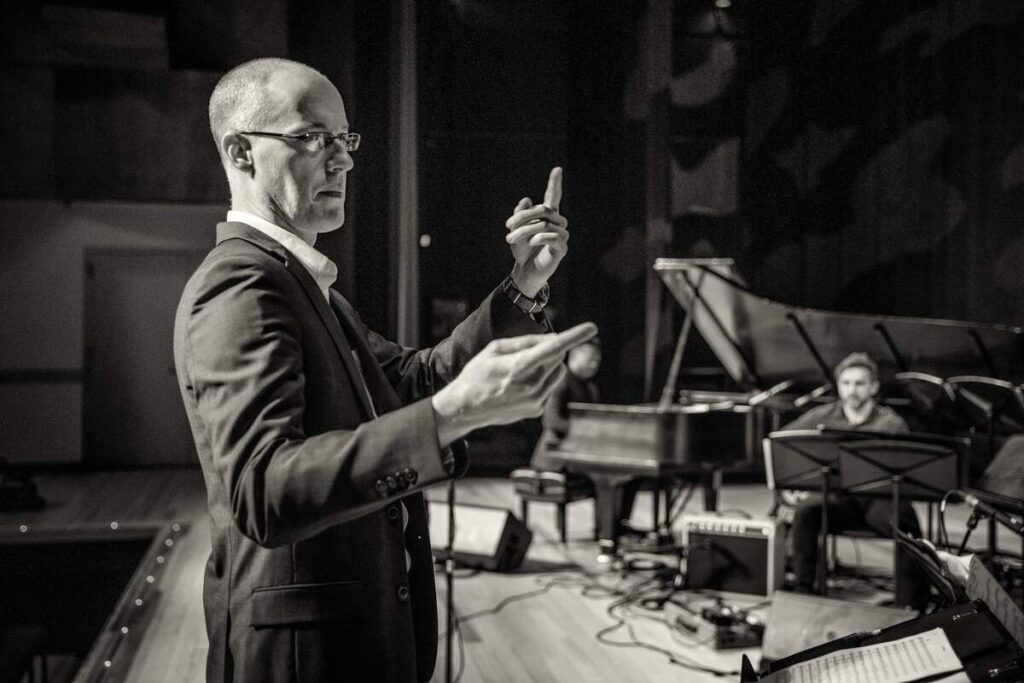
“It’s always tricky for me to know where my music comes from.”
‘Communal Heart’ seems to tap into something more than just music. How do you think about the difference between community as something social and communal as something more musical or even spiritual? Do those things feed into each other in your work?
Sean Imboden: When I think about all of the bands I’ve played in, as well as the bands I currently play in, many times the music is at its best when the musicians connect as people first, before one note is played. Once the music starts, the synergy is already there, and it is easier to jump into a flow state. One quartet I’ve had the pleasure of playing with for ten years is the band Tucker Brothers. Musically, it’s so easy for us to get into the zone, even if it’s a tune we’ve never played before, because we know each other so well. This is one of the great things about living in a place with a vibrant musical and artistic community like Indianapolis. The social aspect absolutely feeds into the creation of the music, and playing gigs with new musicians in a variety of groups enhances your social life and connection to your community.
This record feels like it tells your story, sure, but also the story of a group learning to listen and move together. Was there a moment during rehearsal or performance where it clicked and you felt like the band became something more than the sum of its parts?
Yes, even from the very first rehearsal of the band back in 2017, there were moments where everything clicked. I distinctly remember sections of the arrangements and the overall sound of the band being exactly what I envisioned, as if my heart was being played back to me. From then on, if something didn’t work, it was usually something I needed to fix in the arrangement that wasn’t quite right. I can’t really ever blame the musicians if something isn’t working. They’re all great. From the beginning, I paid close attention to those magical moments and now make a conscious effort to make every moment of the music special. I try to be careful not to have much fluff in my music. This album is only 37 minutes and change, and I hope every second is worth it.
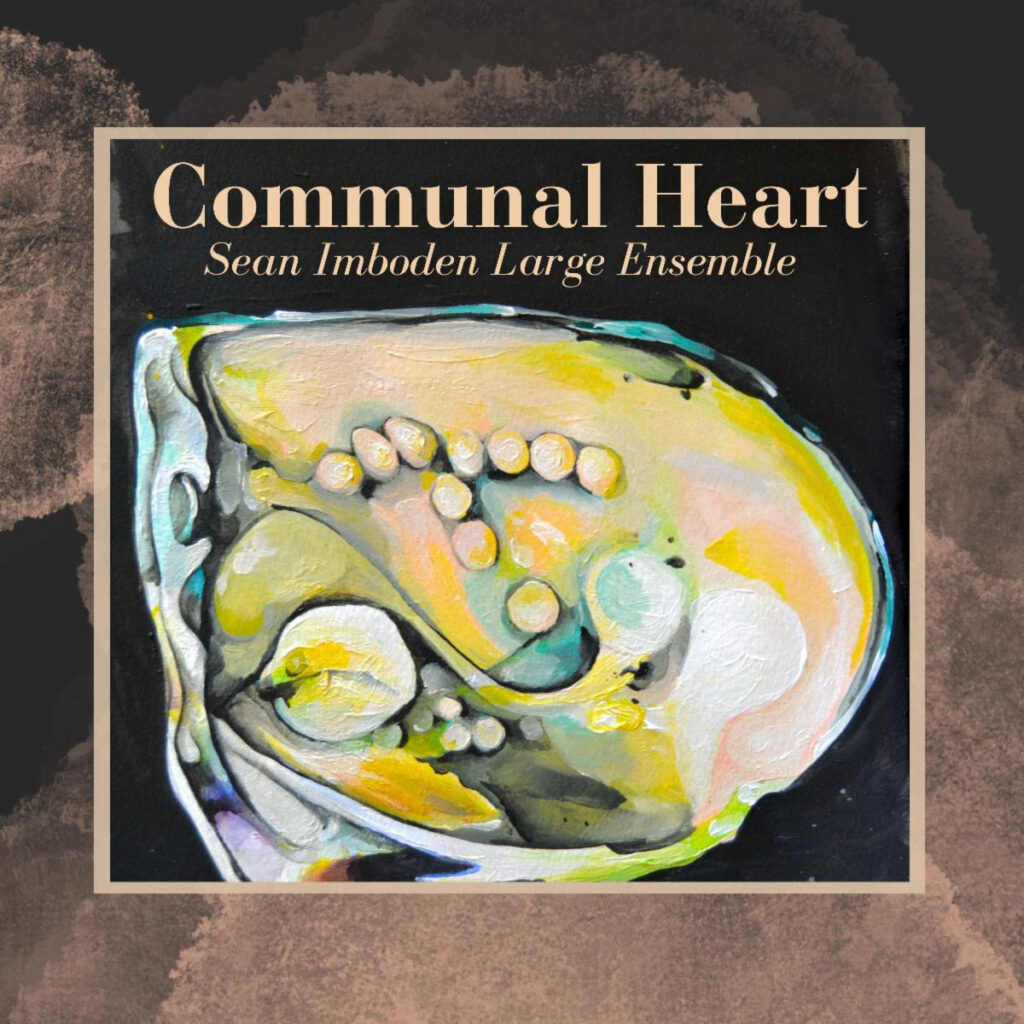
‘Certified Organic’ has this playful, funky edge to it, but there’s also a real pride in place and process. How does being rooted in the Midwest show up in your writing? And do you ever find yourself working against that identity, or leaning into it more over time?
It’s always tricky for me to know where my music comes from. I usually write with no concrete thoughts in my mind, and only afterward do I title pieces and try to think about what may have inspired the initial spark of an idea. One thing I know for sure is the importance of a solid work ethic was implanted in my psyche from an early age. I had so many role models consistently demonstrating this for me: my parents, grandparents, teachers, coaches, and band directors. Being at the helm of a big band is one way to make sure I’m fulfilling this requirement. In fact, I’m certain the band wouldn’t exist if I didn’t maximize my potential. A strong work ethic isn’t only a Midwest mentality, but it certainly is a core tenet of this area, along with honesty, courtesy, and generosity. I hope my music embodies these traits, especially honesty. I always want to write something that is true to me, even if it doesn’t fit an accepted mold or expectation. Actually, especially so.
You’ve mentioned folks like Maria Schneider and Gil Evans, but the way you shape melodies and textures sometimes feels more visual or cinematic than purely musical. Do you draw from other art forms when you’re composing, even if it’s not intentional?
Absolutely. I’m heavily inspired by visual arts, movies, TV, books, people, places, food, and sports. I try to take in the world and let everything naturally be filtered through my music. Again, it is difficult to draw a distinct connection from a composition I write to something concrete in the world, but I believe our minds are enriched and inspired by everything from eating a delicious meal to meeting an interesting person to watching the Tour de France. Each of our experiences molds us as humans, and I find joy in finding the life and humanity in even supposedly mundane occurrences.
“I am very much in the camp that the primary responsibility of a jazz musician and composer is to fully be yourself.”
Big band music carries a lot of historical weight. But this album doesn’t feel like a throwback at all. It feels current and lived-in. How do you keep one foot in the tradition without letting it pull you backward?
Good question, and thanks for noticing. Even if I wanted to, it would be difficult to be completely cut off from the tradition, mainly because the instrumentation in my band is nearly identical to that of Ellington’s, Basie’s, and most other big bands of the past. Plus, I love so much of the historic and legendary big band music, and find it incredibly useful and rewarding to incorporate certain elements that have made this genre so effective (and got me hooked from a young age). A few examples would be an exciting drum fill that anticipates a big horn section, the battle-like interplay between the saxophones and the brass, the driving rhythm section that propels the band into the next section. The list is endless. As much as I love these elements that we can trace back to the bands in the 1920s, I am very much in the camp that the primary responsibility of a jazz musician and composer is to fully be yourself. When we go through the short list of jazz giants—Monk, Trane, Miles, Duke, Bird—they each went all in on who they were, and never tried to sound like anyone else (after doing the requisite work to master their craft). I’m inspired by this, and believe we must uphold this mission even in 2025. I love everything from Radiohead to Rachmaninoff and am not afraid to incorporate anything I’m feeling or hearing into my compositions. I do hope this mindset helps a “big band,” what could be seen as outdated instrumentation, remain fresh and current.
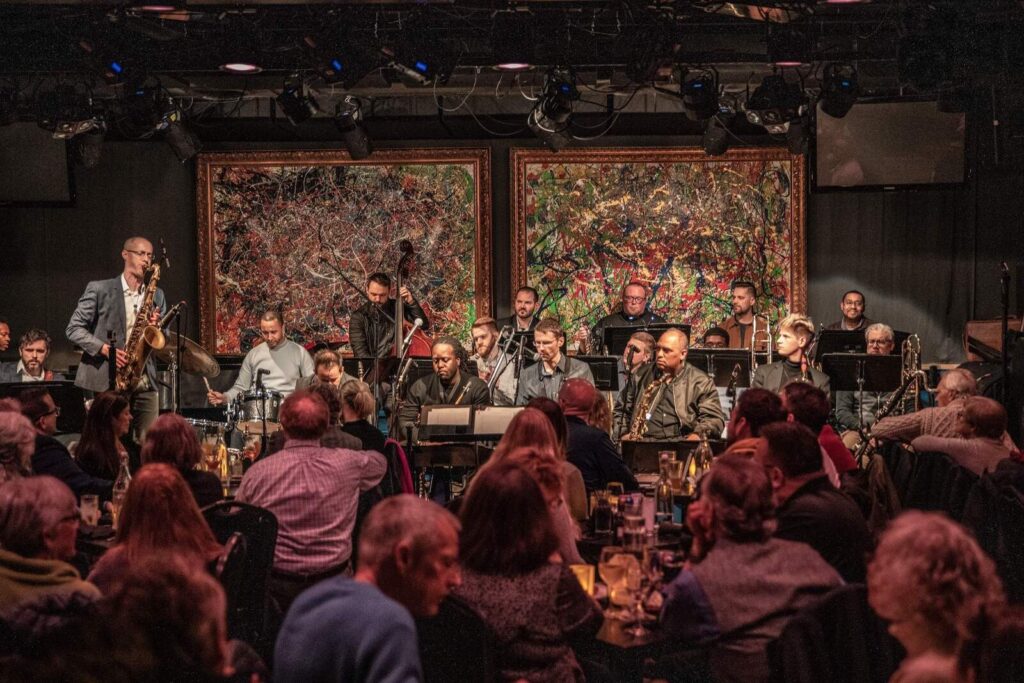
That last track, ‘Portal Passage,’ seems to be reaching for something beyond… maybe a kind of ideal world or future state. What does that ideal look or sound like for you right now? And are you trying to get there, or to build it yourself?
I like that observation. On a personal level, an ideal scenario would be to sustain myself solely from my creative endeavors. I’m not quite there, but maybe someday. I supplement my creative work with teaching music at a couple of schools, which, although it can be a grind at times, does have its moments. On a more general level, I hope we can maintain the perspective that our current situation does not define our future. Anything can change, and keeping a positive mindset is helpful when pursuing your own ideal world.
Writing for a big ensemble gives you all this color and texture, but it can also get messy fast. What’s your process for keeping things clear and emotionally focused when you’re working with 17 players?
Very true. For this reason, I do a lot of editing the arrangements while I’m initially composing, as well as when we’re in rehearsal, and even sometimes after we’ve performed pieces. I’m always paying attention to the overall balance. Am I hearing enough of the melody, and is it the timbre I want? Is the rhythm groove supporting what the horns are doing? Is the bass line too busy, or does it need to be doubled by more instruments? These and a million other questions are always going through my head as I constantly tweak the music to try to get it just right. For this being my first big band album, I would say I’m very happy with how it turned out, especially in terms of the clarity and focus. I do feel as though sometimes I am teetering on the brink of overwriting or making things a bit muddy, and it is helpful to keep an eye (or ear) on that element. I love dense music when it’s done well, like in many of the classical symphonies I adore, and I try to incorporate those elements in a modern jazz setting.
It feels like you’re not just writing for instruments but for individuals. Do you write with specific players in mind? And has anyone in the band ever taken a piece somewhere totally unexpected?
I do often think about the specific players during the writing process. I’m at a point now where I can imagine what it will sound like when certain people play together, and sometimes I’ll visualize the entire band to help get an idea of what sounds I want to blend together. One thing that is very helpful is to be able to have nearly the same personnel for each of our rehearsals and gigs. This isn’t always possible, of course (we’re not the Lincoln Center house band yet), but I do my best to get things on the calendar early and get the players confirmed. Especially when it comes to solos, I think deeply about who is a good fit for a particular section and make sure the energy and mood of the arrangement is a good fit for their playing style. Often I’m pleasantly surprised when soloists do things I’m not expecting, which is one of the many joys of writing for great improvisers.
There’s a kind of radical sincerity in this album. It’s hopeful and unguarded in a way that feels rare right now, especially in jazz. Do you ever worry that putting your heart on your sleeve like this might not land with everyone?
Thanks. I hope it doesn’t land with everyone. That’s one of the great things about art. Someone can love it and someone else can hate it, and they’re both right. When I’m writing and playing music, I never think about whether something will or won’t land with an audience. I only think about whether I think it is good. If I can achieve that, I’m incredibly fulfilled and satisfied. And, odds are, if I love the final product, more than likely at least a few other people will too.
Your move from touring musician to building something local and personal almost reads like a shift from career to calling. Was there a specific moment or realization that made you want to go all in on this path?
Yes. After I played the Radio City Christmas Spectacular in New York City a little over ten years ago, I realized I needed to change gears. At that time, I had been playing primarily commercial gigs and was feeling the calling stronger and stronger to move to the artistic path. Ironically, Radio City, the best-paying gig I had played at that point, was what inspired me to switch to become a starving artist. But I knew there was no way I could continue to work in a field I really had begun to dread. Although the pursuit of artistic whims absolutely has its challenges, the successes I’ve found have been fully worth the struggles.
Improvisation in a big band setting is always a balancing act. How do you approach giving players room to stretch without losing the shape or direction of the piece?
Great question. One thing that I’ve found works well is to give the soloist the shortest effective solo section. I don’t treat it the same as a small group jazz gig, where stretching is expected. Certain solo sections in my arrangements are open, and I’m listening carefully to the soloist for when I cue either backgrounds or the next section. It’s important not to move on too early, before a solo has fully developed, or too late, long after a solo has peaked. Sometimes a short solo in the middle of an arrangement can be the exact right ingredient. Another thing that works well, when having multiple soloists on one piece, is to have blowing sections with different forms or chord changes for each soloist.
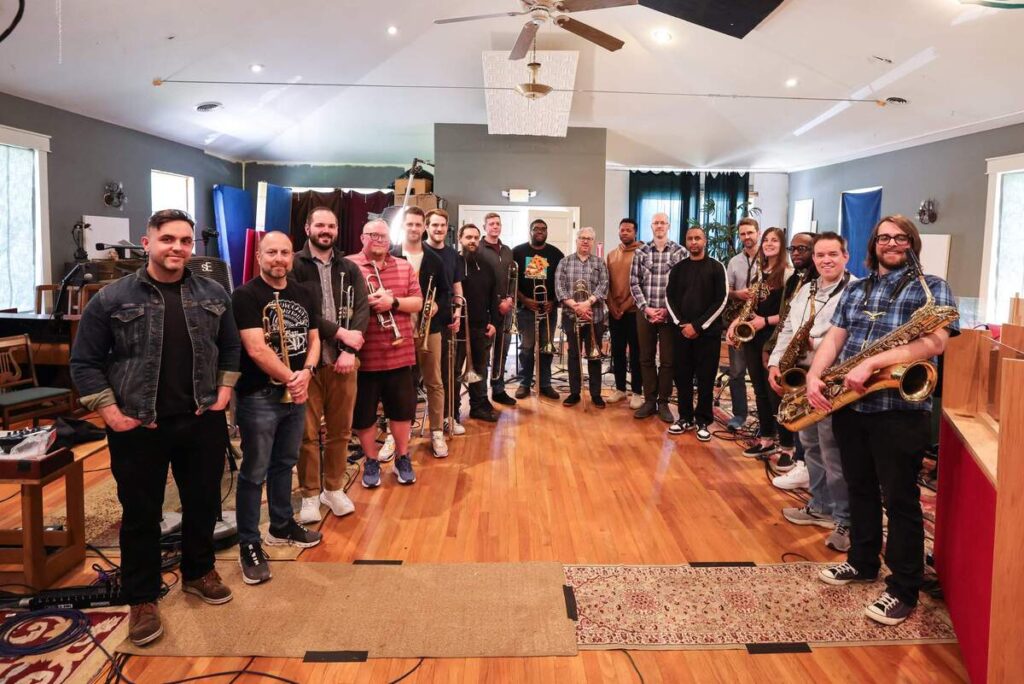
If ‘Communal Heart’ is a snapshot of where you are now, what’s next? Are you looking to grow this ensemble further or do you feel another creative thread pulling you in a different direction?
I do hope to continue to grow this ensemble. We just recorded our second album a few weeks ago, which will be released next year. I’d love to do a new album every year with this band if possible. I would also like to continue various small group projects. Right now, I’m working on some music for string quartet and saxophone, which I’ll be performing later this year, and I hope to make a studio recording in the near future.
Klemen Breznikar
Headline photo: Sean Imboden | Credit: Mark Shelon
Sean Imboden Website / Facebook / Instagram / YouTube

